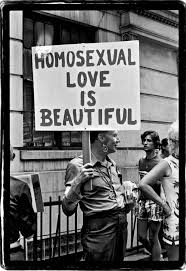The Power of Communities: Building Connections and Fostering Growth
Communities are the heart and soul of human interaction. They bring people together, create a sense of belonging, and provide support in times of need. Whether they are physical neighborhoods, online forums, or interest-based groups, communities play a vital role in our lives.
Creating Bonds
One of the most significant benefits of communities is their ability to create strong bonds between individuals. By bringing people with shared interests or experiences together, communities foster connections that can last a lifetime. These connections not only provide emotional support but also open doors to new opportunities and collaborations.
Communities serve as platforms for individuals to find like-minded people who understand their struggles, passions, and aspirations. Whether it’s a hobbyist group, a support network for parents, or an online community centered around a specific topic, these connections help individuals feel seen and understood.
Support Systems
Communities act as crucial support systems during both good times and bad. In times of celebration or achievement, communities offer encouragement and celebration. Similarly, during difficult moments such as illness or loss, communities provide comfort and empathy.
Support networks within communities can be instrumental in helping individuals navigate life’s challenges. They offer advice, resources, and a safe space to share experiences without judgment. Through these interactions, individuals gain strength from knowing they are not alone in their struggles.
Growth Opportunities
Communities also provide ample opportunities for personal growth and development. They offer a wealth of knowledge and expertise that can be shared among members. Whether it’s through workshops, mentorship programs, or simply engaging in meaningful conversations, communities foster an environment of learning and growth.
Furthermore, communities create a space for individuals to step out of their comfort zones and explore new horizons. They encourage individuals to take on leadership roles, organize events, or contribute to collective projects. These experiences not only build confidence but also develop valuable skills that can be applied in various aspects of life.
Building a Better World
Communities have the power to drive positive change and make a significant impact on society. By coming together around shared values and goals, communities can advocate for social justice, equality, and environmental sustainability.
Through collective action, communities can influence policies, challenge stereotypes, and break down barriers. They amplify voices that might otherwise go unheard and create spaces for marginalized groups to thrive.
In Conclusion
Communities are the backbone of society. They bring people together, provide support systems, foster personal growth, and drive positive change. Whether it’s finding your tribe or contributing to a cause you care about, being part of a community is a powerful experience that enriches our lives.
Understanding Communities: Types, Social Aspects, and Core Definitions
- What are the 3 main types of community?
- What are social communities?
- What are the 5 communities?
- What is the short meaning of communities?
What are the 3 main types of community?
Communities come in various forms, but they can generally be categorized into three main types: geographical communities, interest-based communities, and virtual communities. Geographical communities refer to the neighborhoods or local areas where individuals reside and interact with their neighbors. These communities are built on shared physical spaces and often foster a sense of belonging and support. Interest-based communities revolve around common hobbies, passions, or activities, bringing together individuals who share similar interests. These communities provide opportunities for collaboration, learning, and socializing centered around a specific topic or pursuit. Virtual communities exist primarily online and connect people from different geographical locations based on shared interests or goals. These communities transcend physical boundaries and enable individuals to connect, communicate, and collaborate through digital platforms. Each type of community plays a vital role in fostering connections, support networks, and personal growth among its members.
What are social communities?
Social communities are groups of individuals who come together based on shared interests, values, or experiences. These communities exist both online and offline and provide platforms for people to connect, interact, and form relationships with others who have similar passions or goals. In social communities, individuals engage in conversations, share knowledge and resources, and support one another. These communities can revolve around various topics such as hobbies, professions, cultural identities, or causes. They play a crucial role in fostering a sense of belonging and creating spaces where individuals can express themselves authentically while building connections with like-minded people.
What are the 5 communities?
When discussing communities, it’s important to note that there are countless communities across the globe, each with its own unique characteristics and purposes. While it is challenging to narrow down all communities to just five, some commonly recognized types include geographic communities (such as neighborhoods or towns), professional communities (like industry-specific groups or associations), cultural communities (including ethnic or religious groups), online communities (such as social media groups or forums), and interest-based communities (ranging from sports clubs to book clubs). These are just a few examples among many, highlighting the diverse nature of communities and the various ways people come together to connect, support one another, and pursue shared interests.
What is the short meaning of communities?
Communities, in short, can be defined as groups of individuals who come together based on shared interests, goals, or geographical proximity. They create a sense of belonging and provide support and connections for their members. Whether online or offline, communities play a crucial role in fostering relationships, creating support systems, and promoting personal growth. They are the building blocks of society where individuals can find like-minded people and contribute to a collective sense of identity and purpose.





Leave a Reply